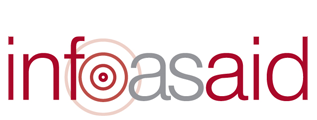Internews and the BBC World Service Trust are partners in a DfID funded consortium focusing on improving how aid agencies communicate with disaster affected communities. The emphasis is on the need to deliver information, as aid itself, through the most appropriate channels ...more
Providing Humanitarian Information in Pakistan
The infoasaid research report ‘Providing Humanitarian Information to Flood-Affected People in Pakistan’ provides a snapshot of the effectiveness of humanitarian information efforts in the provinces of Sindh and Punjab in Pakistan three months after the devastating July 2010 floods.
The primary goal of the research that surveyed over 1,000 people from eight flood-affected areas in these provinces in November and December 2010, was to provide real-time information to support rapid and effective humanitarian information efforts.
The report offers an overall picture of ‘oases and deserts’. While certain areas and groups had better access to information, whether by media or direct from organisational and official sources, many other areas and groups had little to no meaningful access at all.
The report confirmed several suppositions but also included several surprises. For example, access to mass media was measurably higher in Sindh than in southern Punjab; and gender disparities in access, while still dramatic in both locations, were markedly less in Sindh. This ran counter to many assumptions but was backed up by other observations from the field. The report shows that flood-affected people mainly received information that helped them through word-of-mouth from friends and family (the most trusted source of information), followed by TV and radio.
Implications of this Research for Agency Practice
Infoasaid is sharing this report as an example of an activity that could be undertaken by aid agencies in collaboration with media development organisations. The data provided from this type of research provides an invaluable resource for communications activities and planning. However, experience has subsequently shown that this kind of research is unlikely to be funded and therefore used at a broad level if left up to individual organisational responses.
Infoasaid thinks that this is largely a reflection of the often fragmented nature of many agency communications efforts, the lack of adequate resources to undertake research of this kind, and the frequent lack of clarity or appreciation of its importance within humanitarian response.
This suggests that a strategy is needed whereby agencies appropriately resource this type of survey as the basis for their communications strategies, and where all relevant and appropriate platforms in-country combine as much as possible, -for example, by linking teacher networks to radio programming or promoting on television places where communities can seek information.
Any such approach puts a premium on coordination and collaboration. It also implicitly requires a greater mainstreaming of communication efforts by humanitarian organisations generally, beyond the services and support provided by media development organisations themselves.
’Providing Humanitarian Information to Flood-Affected People’ was funded by infoasaid, an Internews and BBC World Service Trust consortium supported by the Department for International Development (DFID). It was administered by Internews and supported in Pakistan by the Communicating with Disaster Affected Communities (CDAC) Network. CDAC brings together humanitarian and media development organisations to integrate two-way communication into humanitarian preparedness and response in the policy and practice areas.



